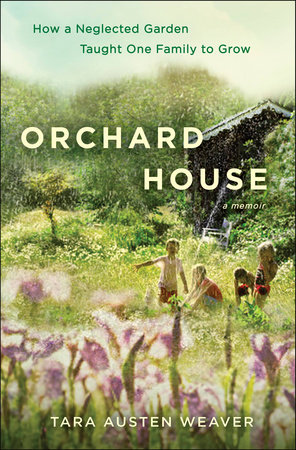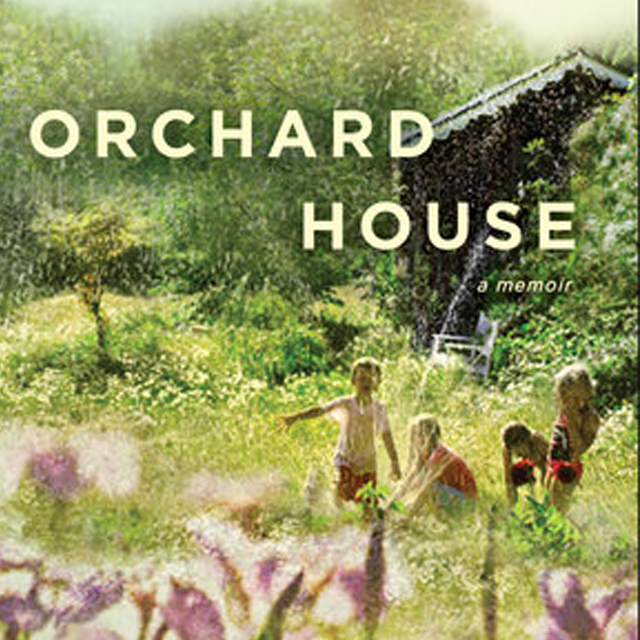
It may seem odd to compare a book to candy, but that notion seemed right in this case. Some candies disappear quickly and before you know it, you’ve unwrapped, chewed and swallowed. Others require time to savor them like peeling the paper off a lollipop where each lick gets you closer to the stick in the center. I picked up Orchard House: How a Neglected Garden Taught One Family to Grow by Tara Austen Weaver in April, not long after the book’s publication date with the intention of reading it on a flight from the West Coast to the East Coast during my book tour. But, it surprised me as good books do, making me rethink my reading plan. This book resonated with me and I lingered on certain passages, really relishing the story.
I’d met the author, Tara Austen Weaver at a blogger conference many years ago and felt like we would be kindred spirits from our shared love of writing and the fact that her blog is called “Tea and Cookies” (yes, she is a voracious tea drinker and includes a lovely anecdote about Matcha on page 155). We saw each other at a culinary conference this year, but I had never actually read her work until now and what I found at times was prose so unsettling or beautiful that I had to pause. I might re-read a sentence or discover the poetry in her framework, using litany with a final turn at the end of her list and a line of gravitas that would cut to the meat of the subject. On page 163 she describes her hopes for what her friends might see in the imperfection of the garden at her mother’s house that comes to a head in the statement, “I hoped they’d see the wonder as well as the weeds.” The chapters in the book almost read like letters or essays that don’t require a reading in one sitting and so I kept coming back to the memoir to see what new thing it might teach me about tending a garden or tending a relationship.
The premise of the memoir lies in the acquisition of a house on a rambling plot of land in Seattle that Tara’s mother purchased. The orchard, the lawn, even the decision to maintain a wild field and a side garden all revealed the tenuous threads between Tara and her mom, characteristic of the complexities that can befall a mother-and-daughter relationship. Through caring for the land they learn how to better care for each other. And it is no small thing. She captured her own vulnerability on the page masterfully that sometimes bled into me asking those questions of my own life. To make the personal universal is no trifling thing for a writer to accomplish in their work. She also deftly transitioned between talking about her family’s inter-personal relations and food. One selection that particularly riveted me pertained to raspberries. She said, “After years of shutting people out, how could I possibly let them in? I hadn’t planned on the raspberries. (p. 157)” And thus begins a story about how the bumper crop of raspberries growing in her mother’s garden offers an opportunity for her to tighten bonds with new friends in Seattle over raspberry pie because “[p]ie begs to be shared. (p. 160)”
As Tara tells her story of coming to peace with her family and finding wholeness, she also introduces many good tips on plants and gardening. Even though I have a black thumb, I became intrigued with learning tidbits coursing through the book about permaculture. I’m in awe of the final chapter, Harvestfest and the brilliant idea it presented for rethinking holiday celebration. I learned that there are two kinds of tomatoes: determinate and indeterminate. I learned about grafting and about the importance of pruning. But all of the gardening anecdotes, while helpful, really build another layer for the undercurrent of hopes and expectations the author has in the kind of relationship she has and wants to have with her family members. “This is the challenge of gardening: to see what is there now and to allow for what will grow. It is an exercise in imagination, in hope, in faith. (p. 49)” And I think by the end of the book, all of the hope, faith and imagination that Weaver has put into the garden and her relationship with her mother have begun to bloom beautifully.
